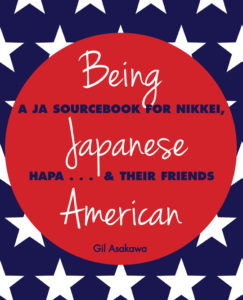
We saw an awesome theatrical performance over the weekend, as part of the
Denver Center for the Performing Arts' "
Stories on Stage" series of dramatic literary readings. The performance was a draft of "Laughing with My Mouth Wide Open," a work in progress. It's a one-woman show by
Gwendoline Yeo, an actress and musician from Los Angeles whose script is an autobiographical look back at her life as an Asian American who immigrated as a child from Singapore.
Yeo sat on an austere stage accompanied by only one other actor sitting at the back, who read the light and sound cues from the script, as well as some lines as the Speak and Spell toy she speaks to as a child, and later, a college professor who befriends, and then betrays her.
Set up on one side of the stage was a
guzheng, or Chinese zither, which Yeo played with great passion and ability several times during the performance. She read from a script she held in her hand -- this was only the second time she'd performed the entire piece in front of an audience. The first time was the same day during a matinee reading. The only prop on stage was the Speak and Spell.
Although the completed one-woman play will have props and furniture and costuming, the lovely Yeo didn't need any embellishments to hold the audience's attention. She had us laughing and thinking, inspired and outraged, as we followed her life from an 11-year-old from Singapore, raised by a strict, authoritarian father and strict, traditional mother, competing for attention with a perfect, over-achieving "model minority" sister and a freakish but cool brother whose love for cowboys has turned him permanently into a drawling, American-style country boy.
Her stories are full of sharp observations about cultural differences, and the journey that all immigrants, not just Asians, undertake to become Americanized.
She recites stereotypes of white people when her father announces the family is moving to San Francisco in a week. In an effort to fit in at her private school in San Francisco, young Gwendoline tries to hang with a gang of Asian chicks who identify more with African Americans and speak "Chinkbonics," but can't quite make it through the initiation crime. She wants to break family tradition and attend college in Los Angeles instead of UC-Berkeley, where her sister and brother go. She wants to study communications, not medicine or law, which are the two choices her father gives her. She gets in trouble with her parents for coming home with a B on a test. The scenes are full of insights about traditional Asian values butting up against American ambitions.
She tells these stories with incredible humor, and mostly keeps us laughing out loud with our mouth open -- something that she points out early in the play, is what white people in America do, but not Asians.
19 January, 2010
 Erin and I are trying something different from our visualizAsian.com interviews with Asian Americans, and hosting a conversation with our friend Adam Schrager, the author of "The Principled Politician: The Ralph Carr Story."
The interview is scheduled for Wednesday, February 24 at 6 pm PT (7 pm MT, 9 pm ET), and like our other talks, it's a free call held over a conference line and webcast, so you can listen via phone (long distance charges may apply) or online (free). Just register for the call, and you can also submit questions both before and during the interview on the webcast page, and we'll pass them along to Adam.
This is a good time to revisit Adam's excellent biography of Ralph Carr, which was published in 2008. The paperback edition has just been released, and Day of Remembrance is coming up on February 19.
OK, you say, what's Day of Remembrance, and who's Ralph Carr, anyway?
Erin and I are trying something different from our visualizAsian.com interviews with Asian Americans, and hosting a conversation with our friend Adam Schrager, the author of "The Principled Politician: The Ralph Carr Story."
The interview is scheduled for Wednesday, February 24 at 6 pm PT (7 pm MT, 9 pm ET), and like our other talks, it's a free call held over a conference line and webcast, so you can listen via phone (long distance charges may apply) or online (free). Just register for the call, and you can also submit questions both before and during the interview on the webcast page, and we'll pass them along to Adam.
This is a good time to revisit Adam's excellent biography of Ralph Carr, which was published in 2008. The paperback edition has just been released, and Day of Remembrance is coming up on February 19.
OK, you say, what's Day of Remembrance, and who's Ralph Carr, anyway? 



 Kate Agathon, a grad school instructor at Purdue University and producer for photographer
Kate Agathon, a grad school instructor at Purdue University and producer for photographer  Like a lot of geeks and a lot of people in journalism, I paid close attention to the weeks of hype and rumors, and then the official announcement yesterday, of Apple's potentially "game-changing" new tablet computer, the
Like a lot of geeks and a lot of people in journalism, I paid close attention to the weeks of hype and rumors, and then the official announcement yesterday, of Apple's potentially "game-changing" new tablet computer, the  We saw an awesome theatrical performance over the weekend, as part of the
We saw an awesome theatrical performance over the weekend, as part of the 
